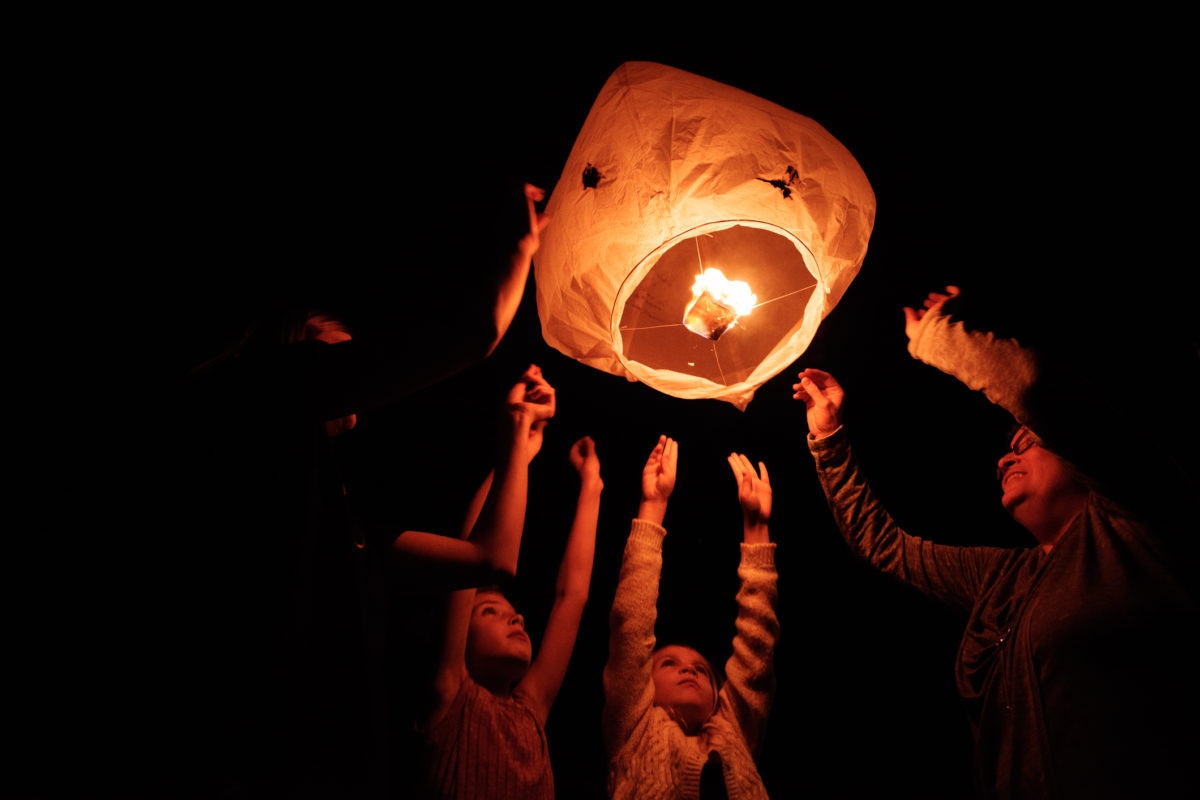The whistle of the tea kettle, unwrapping the tea bag, holding the handle of the kettle with an ancient pot holder to pour its steamy contents into my favorite cup, the steeping of the teabag, the two spoons of sugar, the clank of my spoon as I stir counterclockwise, the memories…
I watch as my daughter and seven-year-old granddaughter drink their cups of tea. My daughter sips on chamomile and my granddaughter her milk tea, which is what we call it because it's more milk than tea.
They laugh and have their mother-daughter conversation, mainly about Roblox, that I will not join even though my granddaughter asks me to. Instead I will take it all in, grateful for my mother who bequeathed me the lesson that mothering and drinking tea go hand in hand.
My late mother was a tea lover. As a child growing up, even on the sultriest days when iced tea or lemonade would have been a better choice, she’d put on the kettle for a cup of tea for my sister, me, and herself.
After she got out three mismatched cups, her chipped flowered cup and two different cups for my sister and me, we’d steep our tea bags in the hot water after she carefully poured it, add sugar and a lot of milk to ours, and lift it to our lips in sweet satisfaction. My sister usually finished her milk tea first and left us sitting at the table. It was then I’d ask my mother as many questions as she would answer, or we’d play a game of tic tac toe or hangman.
As I grew into an adolescent, having tea with my mother was something I ran away from. Throughout that awkward stage in my life, drinking tea with my mother was the furthest thing from my mind. Instead there were slammed doors and loud music to drown her voice out. I thought she would never get me. She would never understand why I needed to wear black eyeliner, or why I called myself a feminist and stopped wearing a bra, or why she should let me drink a glass of wine because my classmate in French class said it was normal for kids as young as 12 to drink wine in France.
When I think of the push and pull in our relationship during those adolescent years, cringing at the things I did that I knew troubled her, I can still envision her sitting at our kitchen table, alone, drinking a cup of tea and waiting for me to join her again.
What fills my heart the most and for what I am always grateful is that when my mother’s eyes met mine, they never held a look of sadness or disappointment. In its place was a gaze brimming with unwavering love and patience, something I needed to have imprinted in my mind so that when I became a mother and walked that same winding parental road, I could emulate her.
When I did become a mother, on my frequent emergency visits to her house when I questioned if I was cut from the right mothering cloth (whatever I assumed that was), when some days I felt hopelessly flawed (I still don’t know why), she’d put the kettle on and take out two cups and we would talk.
She listened more than she gave advice then, knowing that she didn’t need to step in except to put more water in the kettle for a second cup of tea. I'd observed her as a mother even when I wasn’t conscious of doing so. She'd given me a blueprint, to take what was good about her parenting, learn from it, and then discard what was not so good to parent in my own way. She knew I would get it right, even when the jagged edges of parenting left me with scrapes and nicks.
Sometimes she offered me her soft hand to let me know that I’d get through whatever rough patch I was going through. Sometimes she offered laughter that bounced off her yellow kitchen walls and wrapped around me. It was what I needed, a cup of tea and the balm of her presence.
As I watch my daughter drink tea with her daughter, I’m grateful that this tea ritual I learned from my mother is passed on to my daughter to make her own. I’m grateful that when she too goes through rough patches as a woman and a mother, she’ll sit at the table with two tea cups, waiting to talk.
My teacups are mismatched like my mother's (I tend to break one in each set). For me, along with the company, that’s what makes a good cup of tea.



